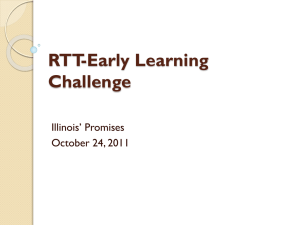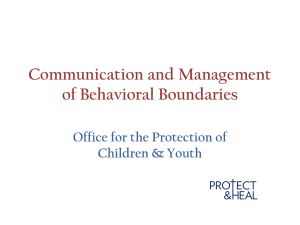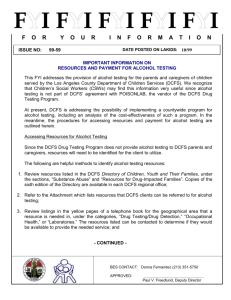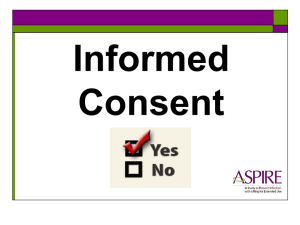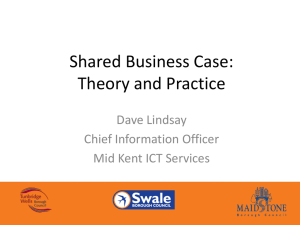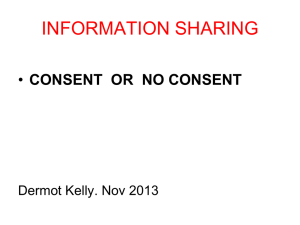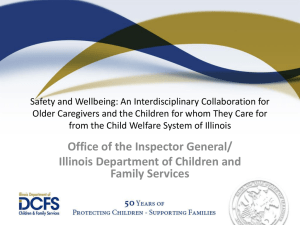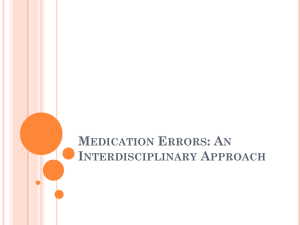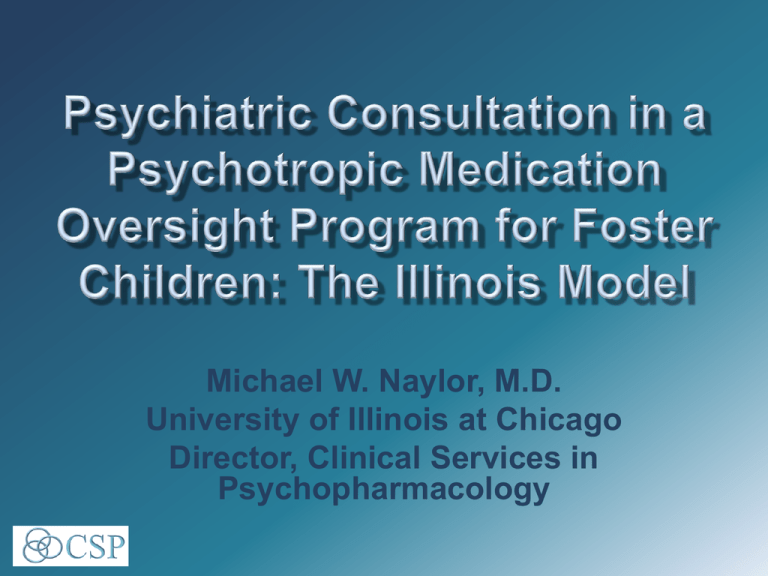
Michael W. Naylor, M.D.
University of Illinois at Chicago
Director, Clinical Services in
Psychopharmacology
• Historical context
– DCFS challenged by federal courts, DOJ
and ACLU
• inadequate casework
• chaotic and dangerous placements
• substandard care
– Illinois violating constitutional rights of
children
• Historical context
– Chicago Tribune 1995 editorial series:
• DCFS called “the worst child welfare system in
America…” and “a cruel, indifferent
bureaucracy that harms kids.”
• “system of shame”
• Historical context
– Federal court-approved consent decree
(B.H. v Suter, 1991)
• DCFS and ACLU agree to collaborate on
system reform plan
• Psychotropic medication consent
– DCFS Rule 325
– Clinicians wishing to start a foster child on
a psychotropic medication must obtain
consent from the DCFS Guardian
• DCFS Psychotropic Medication
Consent Program
– Two components:
• Centralized Psychotropic Medication Consent
Line
– Office of the DCFS Guardian
• Clinical Services in Psychopharmacology
– University of Illinois at Chicago
• Centralized Psychotropic Medication
Consent Line
– Office of the DCFS Guardian
• legal guardian for children committed to the
Department
• responsible for providing consent for medical,
surgical, and psychiatric treatment
• Clinical Services in Psychopharmacology
– provide independent review for all
psychotropic medication requests
– monitor utilization of psychotropic
medications
– provide consultation on particularly
complicated cases
• Clinical Services in Psychopharmacology
– notify the Guardian where provider patterns
warrant review
– conduct training for DCFS, foster parents and
childcare providers on psychotropic
medications
– disseminate information regarding new
pharmaceutical developments and alerts
Prescribing
Clinician
DCFS
Authorized
Agent
UIC Research
Team
UIC Psychiatric
Nurse
UIC Psychiatric
Nurse
UIC Psychiatric
Consultant MD
• Demographic information
– name
– DCFS ID
Number
– date of birth
– sex
– race
– weight and
height
– placement
– physician’s
name and
specialty
• Clinical information
– diagnosis
– current medications and dosage
– symptoms/rationale
– requested medication
• dosage and frequency
• Three main providers of consultation
for clinicians treating foster children:
– Clinical Services in Psychopharmacology
– DocAssist
– Consult for Kids
Consent
Monitoring/
Oversight
QI
CSP
Systemic
Clinical
Prior
Authorization
• Consultation
– consent process
• independent review of the appropriateness of
the psychotropic medication consent request
• recommend action to DCFS
– approve
– deny
– modify
• Consultation
– oversight
• formal
– high risk prescribers
– emergency medication utilization
• informal
– feedback from Administrative Case Reviews
– concerns expressed by caseworkers, regional nurses,
guardian ad litem, Court Appointed Special Advocates,
judges, Office of the DCFS Guardian
• Consultation
– clinical
• clinical concerns that arise in the course of the
independent medication review
• MD:MD
• review of consent history
• chart review
• face-to-face
• Consultation
– prior authorization
• provided consultation to HFS vis-à-vis prior
authorization for antipsychotic medications
and stimulants for children
• DCFS consent for a medication serves as prior
authorization for foster children
• Consultation
– systemic
• consult on development of policies, best
practice guidelines re: mental health care for
foster children
• co-write legislation
• Consultation
– monitoring/QI
• medication utilization patterns
– rate of copharmacy with two or more antipsychotics
– rate of polypharmacy by age group
• timeliness of consent process
• compliance with Rule 325
0.20
Paroxetine Warning
CSP Intervention
Black Box Warning
0.10
0.05
0.00
% Requests
0.15
Paroxetine
Fluoxetine
Other SSRIs
0
20
40
60
Months
80
100
• Illinois DocAssist
– established through the joint efforts of the
Department of Healthcare and Family
Services, the Department of Human
Services – Mental Health, and the
University of Illinois at Chicago
– funding support by the Illinois Children’s
Mental Health Partnership
• Illinois DocAssist
– clinical
• quality of treatment for Medicaid funded children
with mental illness in the primary care setting
– client – Medicaid funded providers with a
focus on primary care
– purpose – improve the identification,
diagnosis and treatment of children and youth
with mental health issues through
consultation, education and referral services
• Consult for Kids Program
– established by DCFS to provide primary
care clinicians participating in
HealthWorks with resources to evaluate
foster children in their care for mental
health and behavioral concerns
• Consult for Kids Program
– clinical
• address questions and concerns about a foster
child’s emotional, interpersonal, behavioral or
cognitive problems
– client – primary care providers
– purpose – help primary care providers
navigate a challenging child through the child
welfare system
• Challenges to effective consultation
– “silo-ization”
• duplication of services
• lack of coordination
– informing stakeholders of the services
– meeting demand for services
“The Curse of Unwelcome Oversight
and Unrequested Consultation.”

